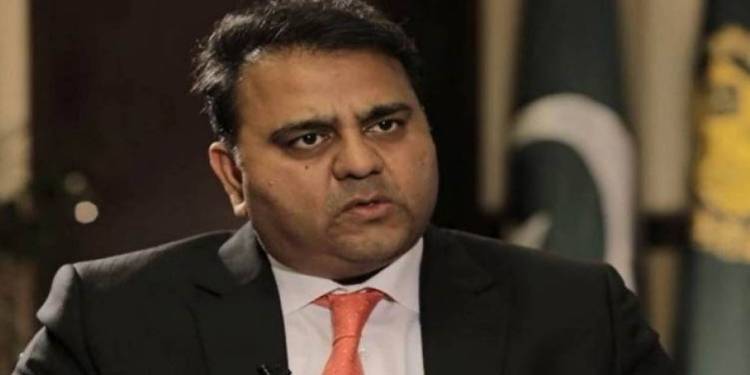
Former Pakistan Tehreek-e-Insaf (PTI) leader Fawad Chaudhry has apologized to the Election Commission of Pakistan (ECP) in response to a contempt case lodged against him by the electoral body.
For reportedly using "intemperate" language against the ECP and Chief Election Commissioner (CEC) Sikander Sultan Raja, Fawad was arrested in the case in August of last year.
For using derogatory language against the CEC and the commission, the country's electoral authorities served notices on Chaudhry and the members of his previous party, including PTI Chairman Khan and Asad Umar.
A four-member committee led by CEC Raja heard the contempt case against the former federal minister and others on Thursday.
Following an order from the Islamabad High Court (IHC), Chaudhry came before the ECP with his lawyer, Faisal Chaudhry. He apologized to the commission and begged it to drop the show-cause notice it had given him.
The former PTI leader said whatever he said was related to the party's narrative while he was its spokesperson.
"It was the party's position that I described. I respect the institutions, including the ECP," the politician said.
The CEC then inquired as to Fawad's willingness to carry out the party chief's orders to kill someone. Raja bemoaned the insults hurled at him, his loved ones, and the commission in front of large crowds.
After that, the ECP asked the former federal minister to send it a letter of apology, which it will later consider. August 1 was set as the new date for the hearing.
Earlier this week, the Islamabad High Court (IHC), acting on Fawad's request, postponed a non-bailable arrest warrant that had been issued by the election commission against him since he failed to show up for a hearing.
In his order, Justice Tariq Mahmood Jahangiri commanded him to show up before the ECP on July 20; otherwise, contempt of court charges will be brought against him. As a result, Fawad appeared before the Commission.
For reportedly using "intemperate" language against the ECP and Chief Election Commissioner (CEC) Sikander Sultan Raja, Fawad was arrested in the case in August of last year.
For using derogatory language against the CEC and the commission, the country's electoral authorities served notices on Chaudhry and the members of his previous party, including PTI Chairman Khan and Asad Umar.
A four-member committee led by CEC Raja heard the contempt case against the former federal minister and others on Thursday.
Following an order from the Islamabad High Court (IHC), Chaudhry came before the ECP with his lawyer, Faisal Chaudhry. He apologized to the commission and begged it to drop the show-cause notice it had given him.
The former PTI leader said whatever he said was related to the party's narrative while he was its spokesperson.
"It was the party's position that I described. I respect the institutions, including the ECP," the politician said.
The CEC then inquired as to Fawad's willingness to carry out the party chief's orders to kill someone. Raja bemoaned the insults hurled at him, his loved ones, and the commission in front of large crowds.
After that, the ECP asked the former federal minister to send it a letter of apology, which it will later consider. August 1 was set as the new date for the hearing.
Earlier this week, the Islamabad High Court (IHC), acting on Fawad's request, postponed a non-bailable arrest warrant that had been issued by the election commission against him since he failed to show up for a hearing.
In his order, Justice Tariq Mahmood Jahangiri commanded him to show up before the ECP on July 20; otherwise, contempt of court charges will be brought against him. As a result, Fawad appeared before the Commission.

